There can be your advertisement
300x150
Repair without surprises: what you need to do before starting work
Before starting a renovation, it's important to consider several nuances. Read more about them
Planning a renovation? Don't rush to call the workers yet! There are several important steps you should take before the noise and dust begin. Let's find out how to prepare for a renovation to avoid unpleasant surprises and extra expenses.
Paperwork: why you need approval for reconfiguration
Before knocking down walls or relocating utilities, make sure it's legal. Obtaining approval for reconfiguration is a tedious but necessary process. Without it, you risk not only a fine (up to 2500 rubles for individuals) but also serious issues when selling your apartment. In the worst case, you may be forced to restore everything 'as it was' at your own expense.
The approval process can take anywhere from a few weeks to several months, depending on the complexity of the reconfiguration and the workload of local authorities. You'll need to gather a set of documents, including the apartment's technical passport, reconfiguration project, and an assessment of the structural elements.
Remember that some types of work are strictly prohibited, such as relocating the kitchen into a living room or expanding the bathroom at the expense of living space. It's better to know about these restrictions before starting the renovation than to run into problems afterward.
Budgeting: how to create a renovation budget and avoid overspending
Creating a detailed estimate is a key step in preparing for a renovation. Underestimating the budget is one of the most common mistakes that can lead to an unfinished renovation or serious financial problems.
Include in your estimate:
- Cost of materials (from rough to finish)
- Payment for specialists' work (including a designer if you plan to hire one)
- Waste removal costs (this can be a significant amount, especially if demolition is planned)
- Tool rental (if you don't plan to buy them)
- Contingency costs (at least 15% of the total amount)
Don't forget about hidden costs: new furniture, curtains, lighting fixtures. These can significantly increase the budget, sometimes by 30-50% of the renovation cost itself.
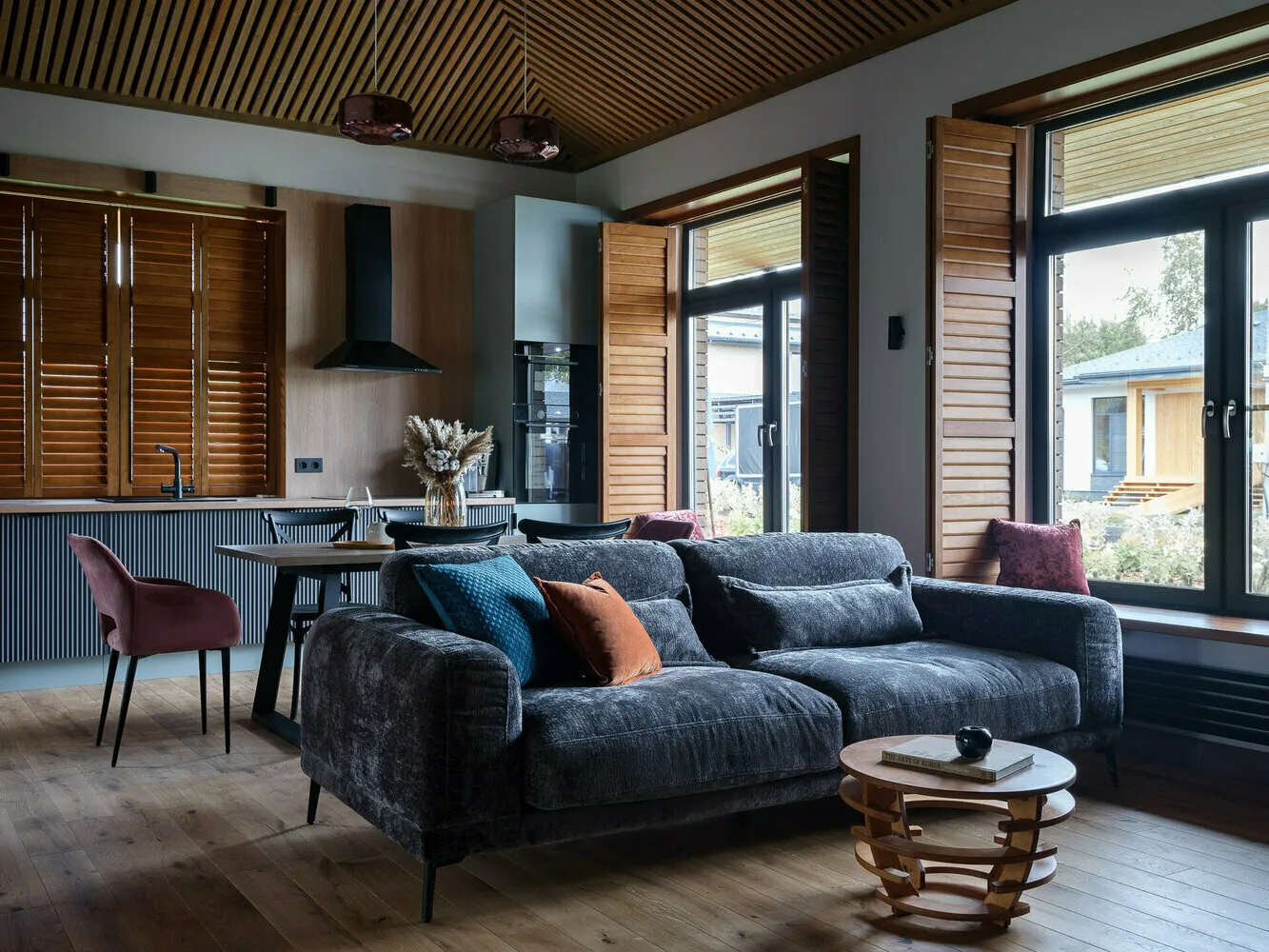
Design: Irina Vasileva
Choosing a contractor: how not to fall for scammers
Picking a reliable contractor is probably the most important step in preparing for a renovation. Poor work can nullify all your efforts in planning and budgeting.
When selecting a construction crew:
- Check reviews and photos of completed work. Don't limit yourself to viewing beautiful images on the website — ask for contacts of previous clients and talk to them in person.
- Sign an official contract with a clear description of the work, timelines, and cost. The contract should include warranty obligations.
- Don't agree to 100% advance payment. The standard practice is to pay in stages according to the progress of the work.
- Verify that the crew has the necessary tools and experience working with the materials you plan to use.
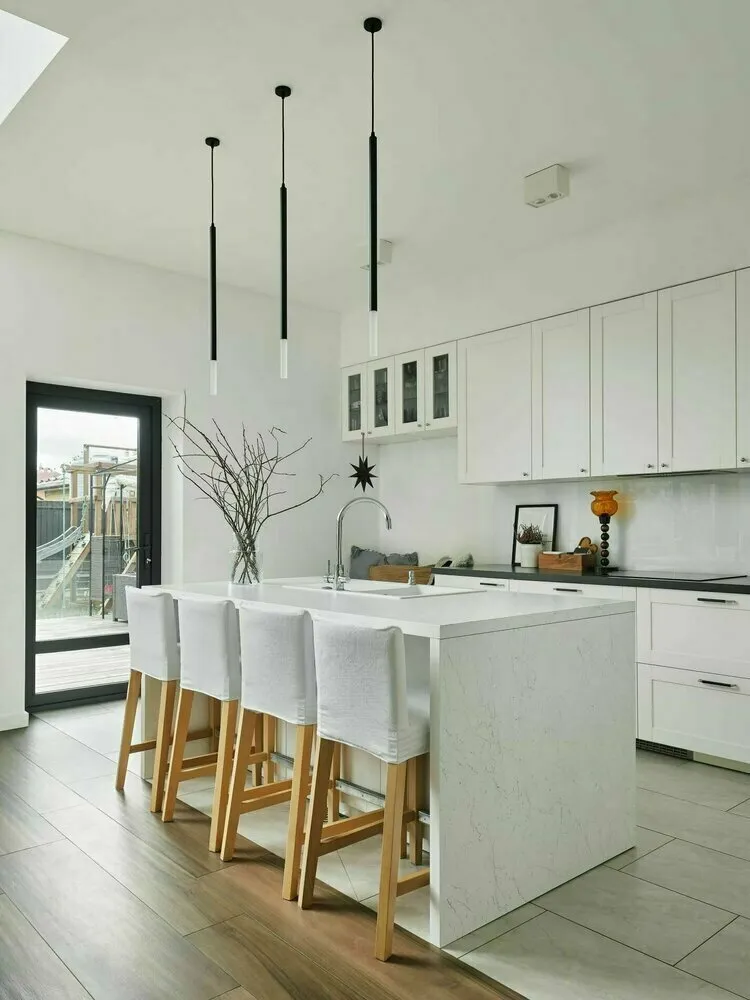
Design: Daria Pevina
Full safety: why civil liability insurance is needed during renovation
Civil liability insurance during renovation is that precautionary measure many forget about, but which can save you from huge unexpected expenses.
In simple terms, it's an insurance policy that covers damage you might cause to neighbors or common property during the renovation. For example, if you accidentally flood your neighbor from below or damage communal utilities.
Why is it needed? To avoid paying large sums out of your own pocket if something goes wrong. Renovations are unpredictable, and even with the most careful approach, accidents can happen.
How much does it cost? On average from 1000 to 5000 rubles per year, depending on the insurance sum and policy conditions. It's a relatively small amount considering that potential payouts for damage can reach hundreds of thousands of rubles.
Preparing for patience: plan temporary accommodation
Actual renovation timelines often differ from the promised ones, and living in an apartment during active work phases is usually impossible or extremely uncomfortable. Therefore, it's important to plan where you'll live during this time.
Options for temporary accommodation:
- With relatives or friends (the cheapest option, but may be uncomfortable for both sides during extended stays)
- Renting an apartment (gives more independence but requires additional expenses)
- Short-term rental via services like Airbnb (can be cheaper than regular rent, especially for short-term stays)
- Hotel stay (suitable for short-term renovations or as a temporary solution)
Account for these costs when planning your budget. The cost of rent can significantly increase the overall renovation cost.

Design: Irina Bdaytsieva
Decluttering: what to do with furniture and belongings
Before starting a renovation, it's important to clear the space for work. This not only makes the renovation process easier but also helps you start a new life in your updated apartment with a clean slate.
Here's what you should do:
- Conduct a thorough review of your belongings. This is a great opportunity to get rid of unnecessary clutter.
- Sort remaining items into three categories: those you'll need during the renovation, those that can be stored, and those that can be discarded or donated.
- Package and label boxes with items you plan to store. This will save time during unpacking.
- Consider renting a storage unit for furniture and large items. Many companies offer services for removal, storage, and return of belongings after the renovation.
Thinking about neighbors: how to prevent conflicts
Renovation is not only your personal matter but also a potential source of discomfort for neighbors. To avoid complaints and conflicts, it's important to establish communication with residents in neighboring apartments in advance.
Here's what you should do:
- Inform neighbors about the upcoming renovation. It's better to do this personally rather than just leaving a note on the door.
- Clarify the times when noisy work can be done. Usually, this is from 9:00 to 19:00 on weekdays, but regional rules may vary.
- Leave your contact information in case of emergencies.
- If particularly noisy work is planned, notify separately and try to schedule it at a time when most neighbors are at work.
Preparing for renovation may seem tedious, but it will save you nerves, time, and money in the future. Plan all the details, protect yourself from risks, and don't forget that the result is worth all the effort. There's nothing more pleasant than returning to a beautiful and cozy home created with love and care. Good luck with your renovation!

Design: Daria Filippova
Cover: design project by Olga Filippova
More articles:
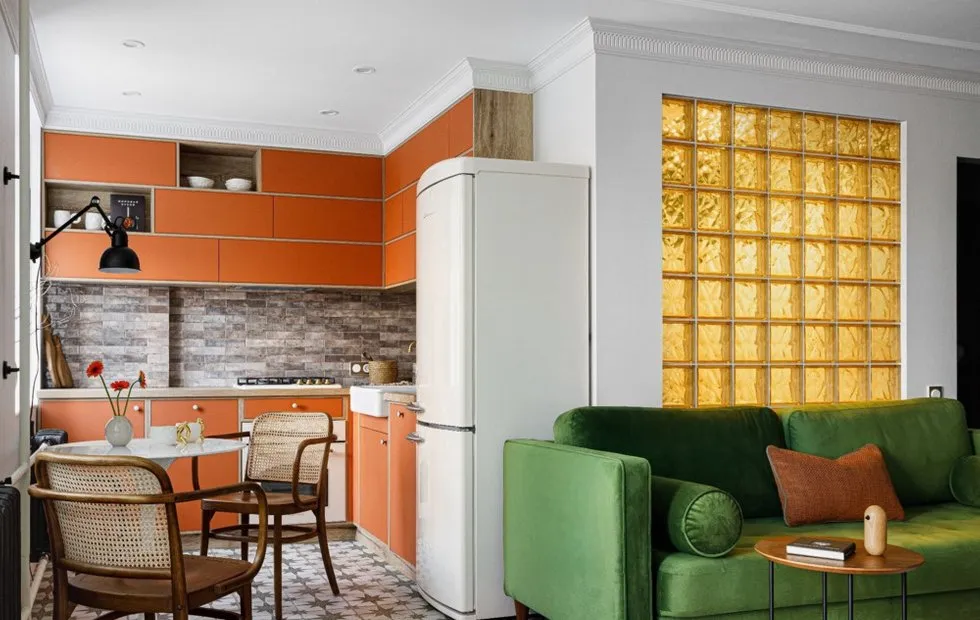 Ceilings That Press Down: How to Visually Increase Height in a Khrushchyovka
Ceilings That Press Down: How to Visually Increase Height in a Khrushchyovka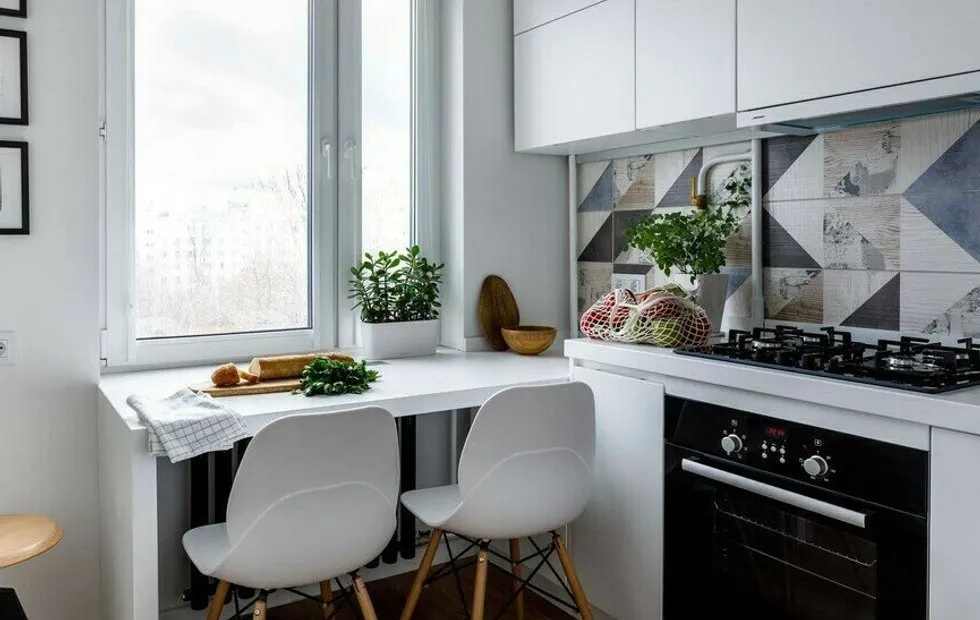 Kitchen 2.0: How 4 Square Meters Became the Center of the Universe
Kitchen 2.0: How 4 Square Meters Became the Center of the Universe Skin Care After 30: Secrets That Will Surprise You
Skin Care After 30: Secrets That Will Surprise You Dream Kitchen in Standard Layout: From Design Project to Implementation
Dream Kitchen in Standard Layout: From Design Project to Implementation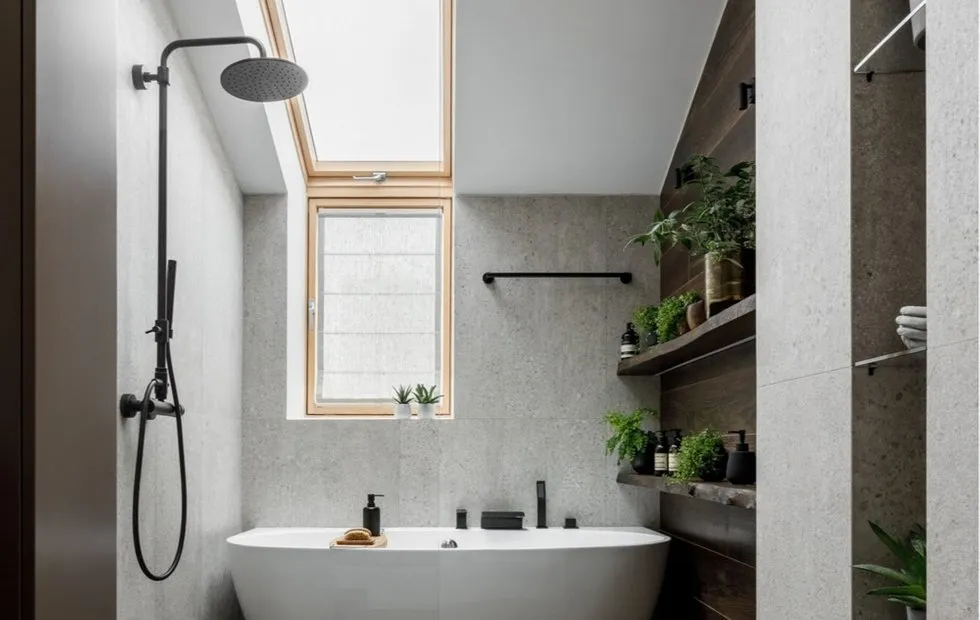 Home Spa Salon: How to Turn Your Bathroom into a Oasis of Peace
Home Spa Salon: How to Turn Your Bathroom into a Oasis of Peace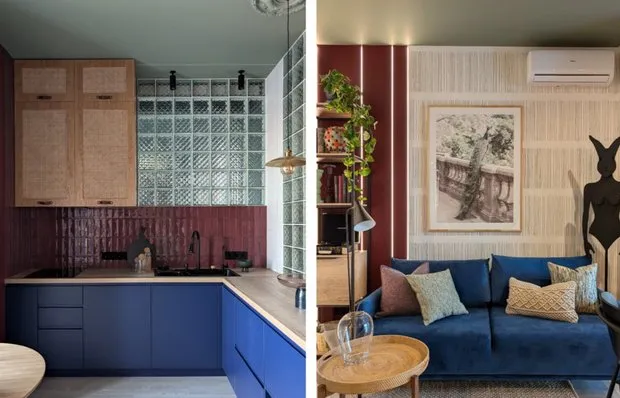 Euroroom-greenhouse 49 m² with original storage
Euroroom-greenhouse 49 m² with original storage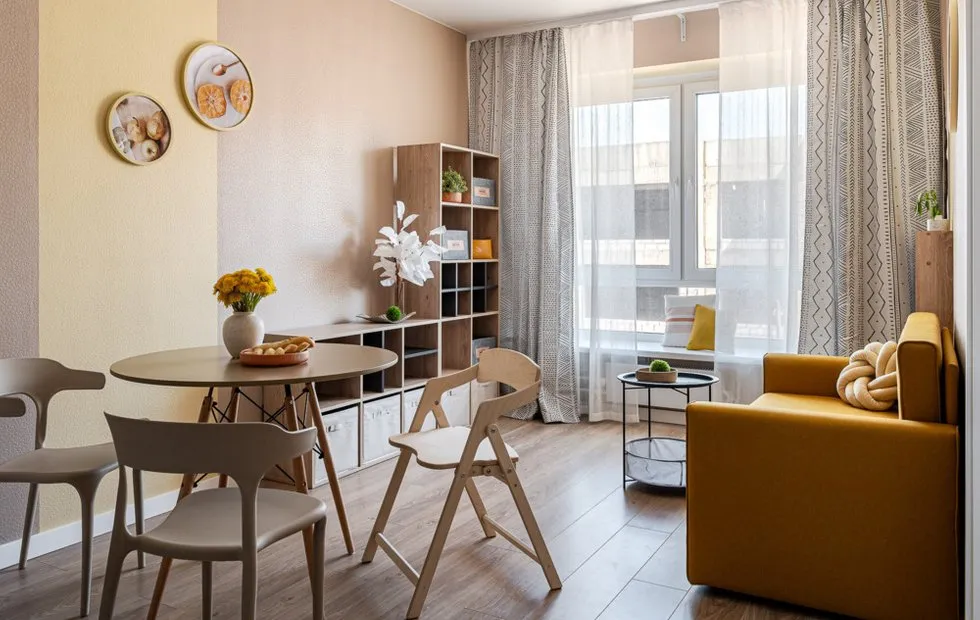 Home Mini-Project: Rearranging Furniture to Refresh Interior
Home Mini-Project: Rearranging Furniture to Refresh Interior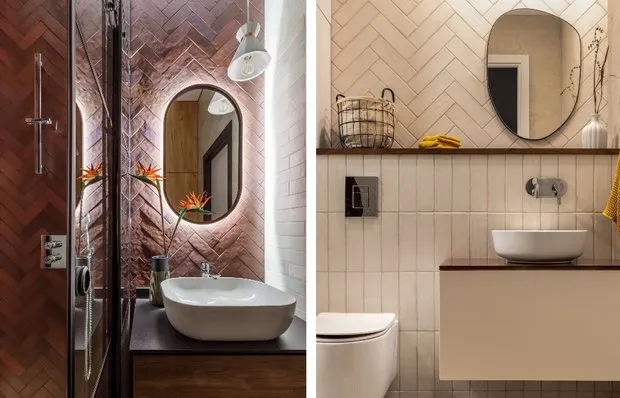 Fit Everything! How to Arrange a Small Bathroom: 6 Pro Tips
Fit Everything! How to Arrange a Small Bathroom: 6 Pro Tips